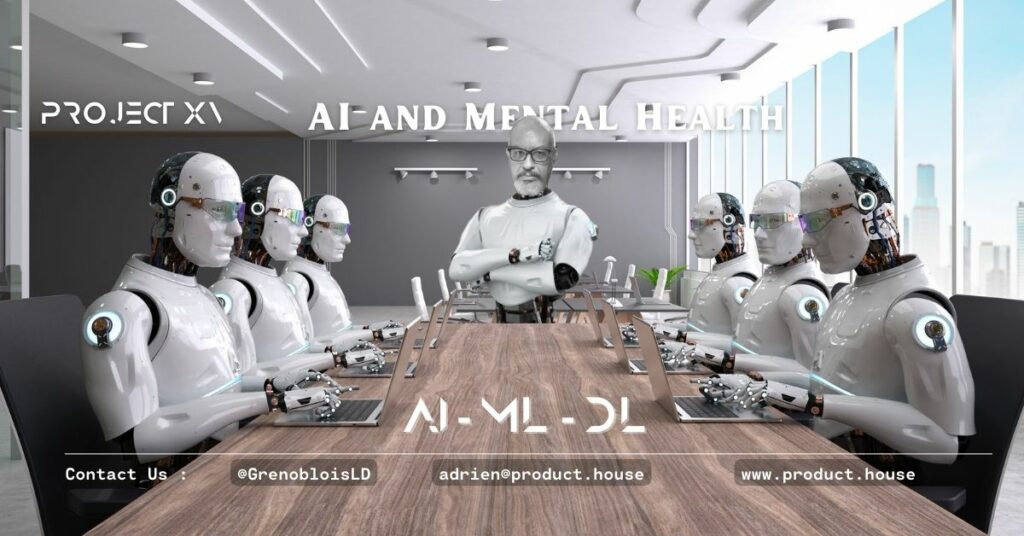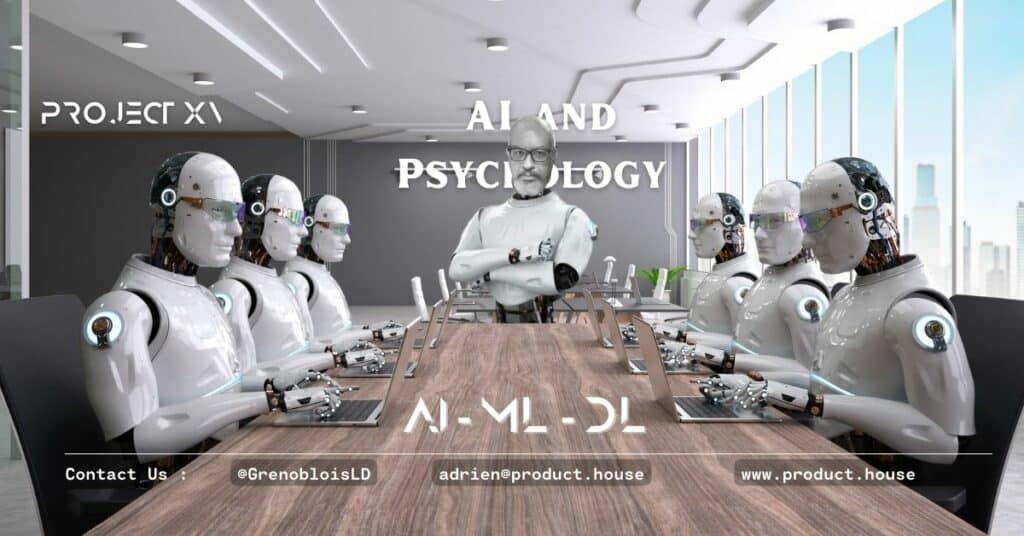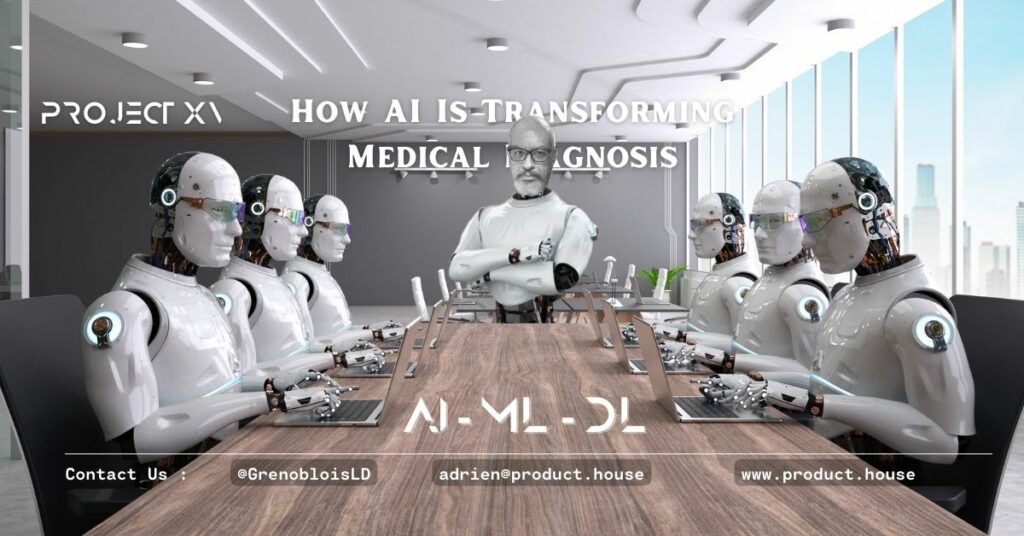AI and Mental Health: Improving Diagnosis and Treatment of Mental Health Conditions

Artificial intelligence (AI) has the potential to revolutionize the field of mental health. By using machine learning algorithms, healthcare professionals can analyze large amounts of data and provide more accurate diagnoses and personalized treatment plans for patients with mental health conditions. In this article, we will explore the ways in which AI is improving the diagnosis and treatment of mental health conditions.
Introduction
Mental health conditions affect millions of people worldwide, yet many people struggle to get an accurate diagnosis and receive appropriate treatment. This is where AI can play a vital role in improving the quality of care for patients with mental health conditions. By analyzing large amounts of patient data, including medical records, imaging scans, and genetics, machine learning algorithms can identify patterns and correlations that may not be immediately apparent to healthcare professionals.
AI and Diagnosis
One of the biggest challenges in the diagnosis of mental health conditions is accuracy. Many mental health conditions share similar symptoms, making it difficult to distinguish between them. AI can help with this by analyzing large amounts of patient data and identifying patterns that can help healthcare professionals make more accurate diagnoses.
Machine learning algorithms can analyze medical records, imaging scans, and genetics to identify patterns and correlations that may not be immediately apparent to healthcare professionals. This can lead to more accurate diagnoses and improved treatment outcomes for patients.
AI and Treatment
Once a diagnosis has been made, the challenge becomes treatment. AI can help with this as well. By analyzing patient data and predicting outcomes, machine learning algorithms can help healthcare professionals choose the most effective treatments for their patients.
AI can also be used to develop new treatments. By analyzing large amounts of medical research data, machine learning algorithms can identify patterns and correlations that may lead to new treatment options.
AI and Patient Care
AI can also help with patient care. By analyzing patient data and predicting outcomes, healthcare professionals can provide personalized care that is tailored to the individual patient. This leads to better health outcomes and improved patient satisfaction.
AI can also be used to monitor patients in real-time. By analyzing patient data, healthcare professionals can detect changes in a patient’s condition and provide timely intervention and treatment.
Challenges and Opportunities
While AI has the potential to revolutionize the diagnosis and treatment of mental health conditions, there are also some challenges that need to be addressed. One of the biggest challenges is the need for high-quality data. Machine learning algorithms require large amounts of data to be trained, and the quality of the data is critical to the accuracy of the predictions. This means that healthcare professionals need to invest in data quality and data management to ensure that their machine learning models are accurate.
Another challenge is the need for expertise in data science and machine learning. Healthcare professionals need to have a good understanding of how machine learning works, and they need to be able to work with data scientists to develop and deploy machine learning models. This requires a certain level of technical knowledge, as well as an understanding of the healthcare context.
However, despite these challenges, there are many opportunities for the mental health industry to use AI in new and innovative ways. With the right approach, AI can help healthcare professionals provide better care to their patients.
Resources and Further Reading
If you are interested in learning more about how AI is transforming the diagnosis and treatment of mental health conditions, there are many resources available to you. Here are a few recommendations:
Books:
- “Artificial Intelligence in Behavioral and Mental Health Care” by David D. Luxton, John Torous, and Ned Milenkovich
- “Mental Health in the Digital Age: Grave Dangers, Great Promise” by Eliot Sorel
Online Courses:
- “Artificial Intelligence and Mental Health” offered by Coursera
- “Machine Learning for Mental Health” offered by edX
- “AI in Mental Health” offered by Udacity
University Courses:
- “Artificial Intelligence in Behavioral Health and Neuroscience” offered by Harvard University
- “Machine Learning and Mental Health” offered by University of Toronto
- “AI for Mental Health” offered by University of Edinburgh
Suggested Teachers:
- David D. Luxton
- John Torous
- Eliot Sorel
Examples:
- Early detection of mental health conditions using machine learning algorithms
- Personalized treatment plans based on patient data and predictions
- Real-time patient monitoring using machine learning algorithms
FAQs:
Q: How is AI used in the diagnosis of mental health conditions? A: AI is used to analyze patient data and identify patterns that can help healthcare professionals make more accurate diagnoses. Machine learning algorithms can analyze medical records, imaging scans, and genetics to identify patterns and correlations that may not be immediately apparent to healthcare professionals.
Q: How is AI used in the treatment of mental health conditions? A: AI is used to analyze patient data and predict outcomes, helping healthcare professionals choose the most effective treatments for their patients. This leads to better health outcomes and improved patient satisfaction.
Q: What are some of the challenges of using AI in mental health? A: One of the biggest challenges is the need for high-quality data. Machine learning algorithms require large amounts of data to be trained, and the quality of the data is critical to the accuracy of the predictions. Another challenge is the need for expertise in data science and machine learning.
Q: What are some examples of AI in mental health? A: Examples of AI in mental health include early detection of mental health conditions using machine learning algorithms, personalized treatment plans based on patient data and predictions, and real-time patient monitoring using machine learning algorithms.
Q: What are some of the benefits of using AI in mental health? A: The benefits of using AI in mental health include improved accuracy and speed of diagnosis and treatment, personalized care for patients, and improved patient satisfaction.





